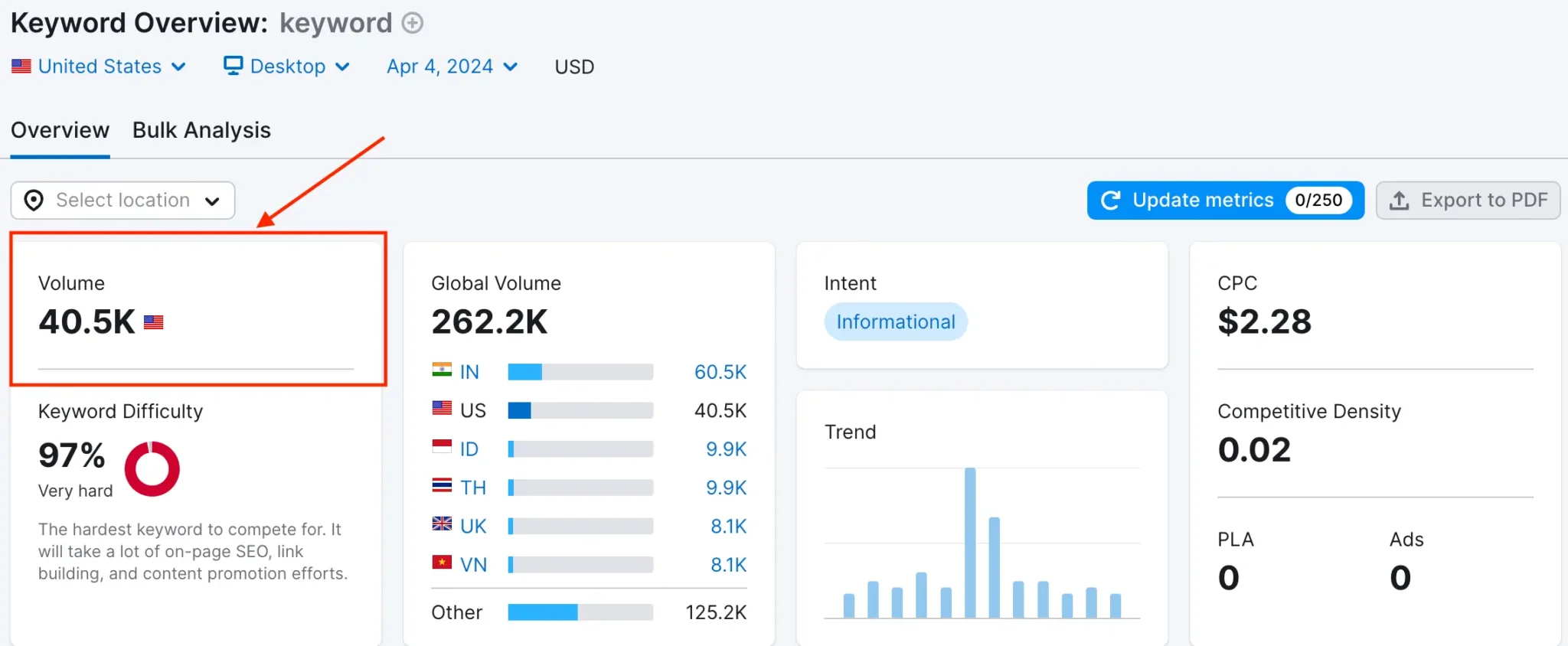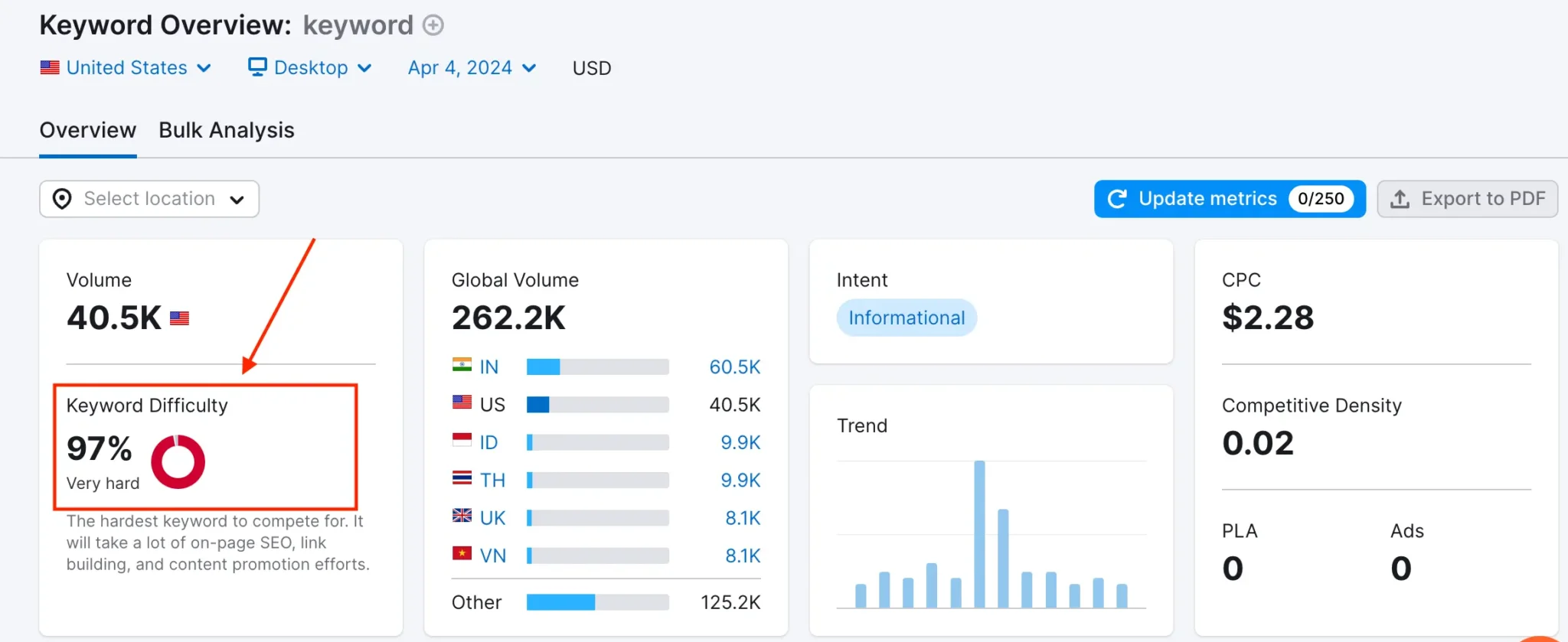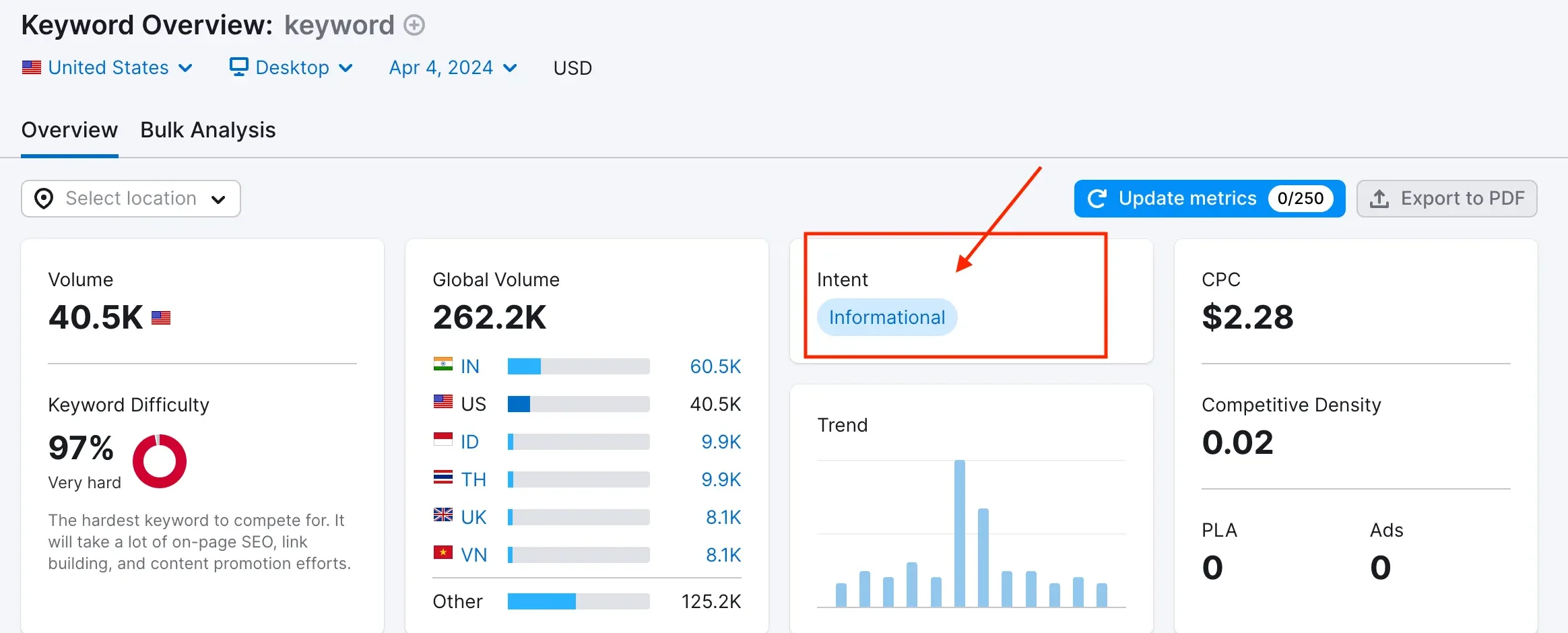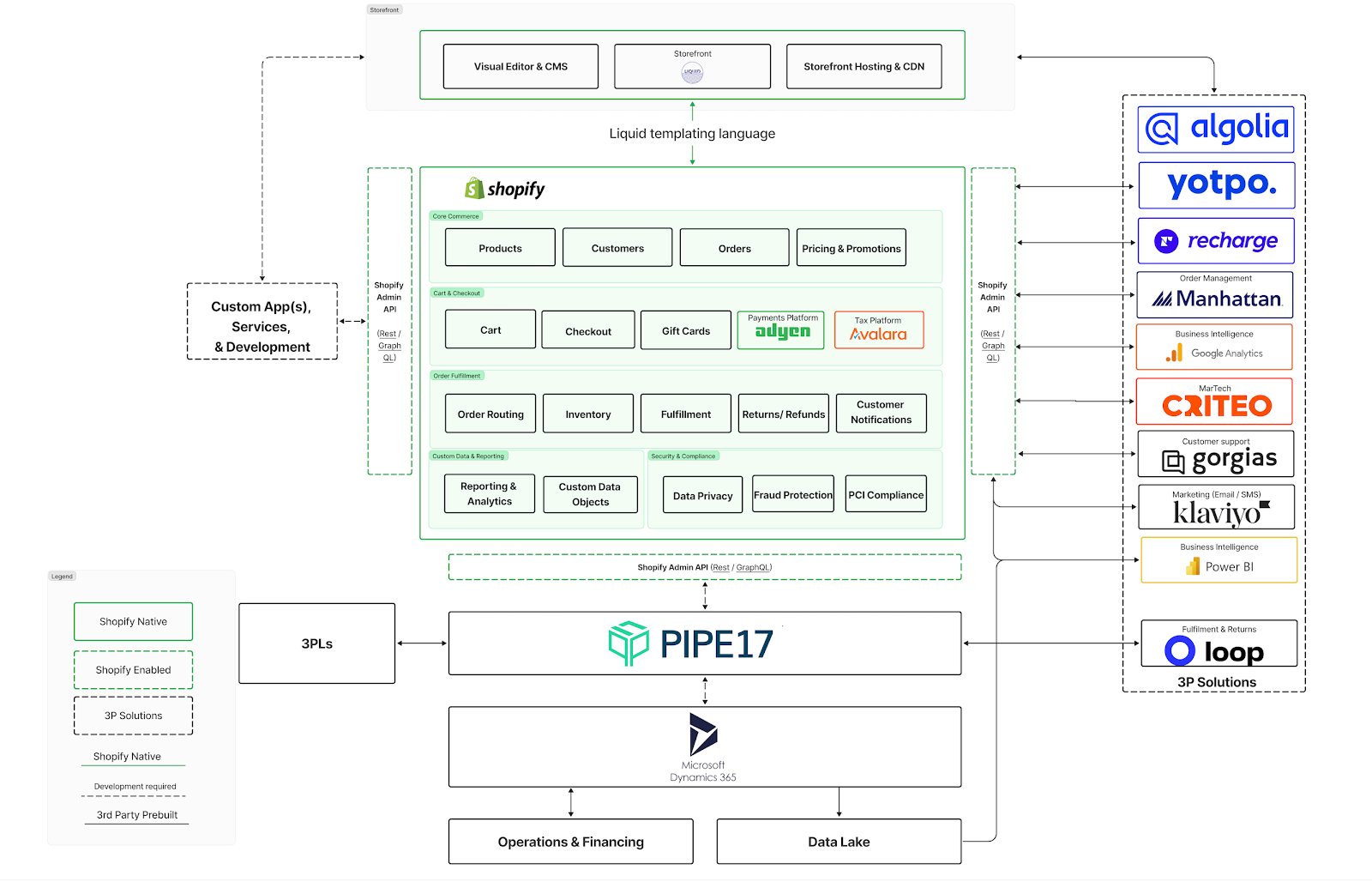What are keyword metrics?
Keyword metrics are data points used to evaluate the effectiveness and potential of specific keywords in SEO and digital marketing campaigns. These metrics help in understanding how well a keyword can perform and how valuable it is for targeting. Some key keyword metrics include:
Search Volume: The number of times a keyword is searched for in a given period, typically measured monthly. Higher search volumes indicate greater interest or demand.
Keyword Difficulty: A measure of how challenging it is to rank for a particular keyword. Higher difficulty means more competition from other websites targeting the same keyword.
Cost Per Click (CPC): The average cost advertisers pay for each click on their ads for a specific keyword. Higher CPC indicates more competitive and potentially more valuable keywords.
Click-Through Rate (CTR): The percentage of users who click on a search result after seeing it. Higher CTR suggests that the keyword is relevant and enticing to searchers.
Keyword Relevance: How closely a keyword matches the content and intent of a webpage. More relevant keywords are likely to drive more qualified traffic.
Search Intent: Understanding the purpose behind a user’s search query, such as informational, navigational, transactional, or commercial. Aligning keywords with search intent improves user satisfaction and engagement.
Organic Clicks: The number of clicks a keyword receives from organic search results. This metric helps gauge the actual traffic potential of a keyword.
Competitive Density: The number of advertisers bidding on a keyword in paid search campaigns. Higher density indicates more competition and can influence both CPC and organic difficulty.
First off, keyword metrics are numbers and data points that tell you how effective your chosen keywords are. These are the words or phrases you think people use when they’re searching for something you offer. Knowing these metrics helps you figure out if you’re on the right track or if you need to make some changes in your keyword research.
Keywords are the specific words or phrases people use when they search for something on the internet. Keyword metrics? They’re just the tools you use to understand how well these keywords are working for you
Main Keyword Metric
Volume, Difficulty and Others
First things first, why do we even care about keyword metrics? Well, if you’re putting effort into creating content or selling products online, you want to make sure people can find you. Using the right keywords can help with that. But how do you know if you’re using the right ones? That’s where keyword metrics come in. There’re free tools for keyword research, or you can use Semrush or other SEO tools.
Keyword Volume
Keyword volume is basically how many times people search for a specific word or phrase in a search engine over a certain period. Think of it as a popularity contest for words. The more times a keyword is searched, the more popular it is.
High volume means a lot of people are interested in that topic. That sounds great, right? Well, yes and no. High search volume means high interest, but it can also mean high competition. Your goal is to find keywords that are popular enough to guarantee an audience but not so popular that you’re a small fish in a big sea.
Difficulty
Difficulty tells you how hard it will be to get your page to rank high in search engine results for a specific keyword. A high difficulty score means there’s a lot of competition, and it’ll be tougher to stand out. If a lot of big, well-established sites are ranking for a keyword, that’s going to make it tougher for you. So, try to choose keywords with low difficulty.
Analyzing keyword difficulty isn’t about getting tangled in numbers and data. It’s about getting a clear picture of what you’re up against and making informed decisions. With the right tools and a bit of patience, you can pick keywords that not only fit your content but also give you a fair shot at ranking well in search engine results.
Search Intent
Search intent is the reason behind every search query. It’s what you’re really hoping to find when you type something into a search engine. Understanding search intent is about getting into the minds of your audience. Are they looking to buy something? Maybe they just want an answer to a question, or they’re looking to visit a specific website.
The Four Main Types of Search Intent
- Informational: This is when someone is looking for information. It could be anything from “how to tie a tie” to “what is climate change.” People aren’t looking to make a purchase; they just want answers or to learn something. In your keyword research focus on finding phrases, that can answer the user’s question.
- Navigational: Here, the searcher knows where they want to go. They might type in “YouTube” or “Facebook login.” They’re not shopping around; they have a destination in mind.
- Transactional: This time, they’re ready to buy or do something specific. Searches like “buy iPhone 15” or “Netflix subscription” fall under this category. The intent is to complete a transaction.
- Commercial: These searchers are thinking about buying and are doing their homework. They might look up “best running shoes 2024” or “iPhone 14 vs. iPhone 15” to compare before they decide.
Lots of SEO Tools can show the search intent for every keyword, so, when you do keyword analysis pay attention to the intent. But always check that in the search results.
Matching your content with the right search intent ensures that the right people find your content at the right time. When your page perfectly aligns with what someone is seeking, search engines like Google are more likely to put your page in front of them. This means more clicks, more visitors, and if you’re selling something, potentially more sales.
In addition, some keywords can have multiple meanings. You can start by searching for the keyword in a search engine and see what comes up. The variety of results can give you insight into the different intentions behind the search term. In this case, the smart move is to create content that addresses each intent separately.
Keyword metrics aren’t just numbers – they’re insights into what your potential visitors are looking for and how you can connect with them. By understanding and using these metrics wisely, you can improve your website’s visibility and attract more visitors. Remember, it’s not about using the most complicated strategies or terms but about knowing what works and applying it to your content. For expert assistance in optimizing your website and making the most of keyword metrics, check out our SEO services at Seotwix. Our tailored SEO packages can help you connect with your audience and boost your online presence effectively.






